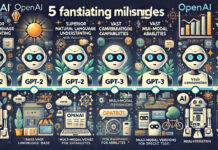AI in Finance is transforming the financial industry, offering innovative solutions to risk management and trading. By leveraging advanced algorithms and vast datasets, AI enhances decision-making, optimizes operations, and provides a competitive edge. This article explores how AI is revolutionizing risk management and trading, the benefits it brings, and the challenges it poses.
AI in Risk Management
Risk management is a critical aspect of the financial sector. Traditional methods often struggle to keep up with the complexity and speed of modern markets. AI offers a sophisticated alternative, providing real-time analysis and insights that significantly improve risk assessment and mitigation.
Enhanced Data Analysis
AI algorithms can process and analyze vast amounts of data quickly and accurately. They identify patterns and correlations that human analysts might miss, allowing for more precise risk assessments. This capability is particularly useful in detecting market anomalies, fraud, and compliance issues.
Predictive Analytics
AI-powered predictive analytics helps financial institutions anticipate potential risks before they materialize. By analyzing historical data and current market trends, AI models can forecast future market movements and identify emerging threats. This proactive approach enables firms to implement preventive measures, reducing the likelihood of significant losses.
Stress Testing and Scenario Analysis
AI enhances stress testing and scenario analysis by simulating various market conditions and their potential impact on a portfolio. These simulations provide valuable insights into the resilience of financial strategies under different scenarios, helping institutions prepare for adverse market conditions.
AI in Trading
AI’s impact on trading is profound, offering new levels of speed, efficiency, and accuracy. From algorithmic trading to portfolio management, AI-driven systems are reshaping the trading landscape.
Algorithmic Trading
Algorithmic trading, or algo-trading, involves using AI algorithms to execute trades at high speeds and volumes. These algorithms analyze market data, identify trading opportunities, and execute orders based on predefined criteria. This approach minimizes human intervention, reducing the risk of errors and emotional biases.
High-Frequency Trading
High-frequency trading (HFT) takes algorithmic trading to the next level, using AI to execute trades in microseconds. HFT firms leverage AI to identify and capitalize on tiny price discrepancies across markets. This rapid execution requires sophisticated AI systems capable of processing vast amounts of data in real time.
Portfolio Management
AI enhances portfolio management by optimizing asset allocation and rebalancing strategies. AI-driven tools analyze market trends, economic indicators, and investor preferences to build and manage portfolios that align with specific investment goals. This dynamic approach ensures that portfolios remain well-balanced and aligned with market conditions.
Sentiment Analysis
AI-powered sentiment analysis tools assess market sentiment by analyzing news articles, social media posts, and other text data. These tools provide insights into investor mood and market trends, helping traders make informed decisions. Sentiment analysis can also identify potential market-moving events, allowing traders to adjust their strategies accordingly.
Benefits of AI in Finance
The integration of AI into risk management and trading offers numerous benefits for financial institutions and investors.
Improved Efficiency
AI automates complex processes, reducing the time and effort required for data analysis, trading, and risk assessment. This automation improves operational efficiency and allows financial professionals to focus on strategic decision-making.
Enhanced Accuracy
AI systems analyze data with greater accuracy than humans, identifying subtle patterns and correlations that might be overlooked. This precision enhances risk assessments, trading decisions, and portfolio management.
Real-Time Insights
AI provides real-time insights into market conditions, enabling faster and more informed decision-making. This capability is crucial in the fast-paced world of finance, where timely decisions can significantly impact outcomes.
Cost Savings
By automating tasks and improving efficiency, AI reduces operational costs for financial institutions. These savings can be passed on to investors in the form of lower fees and better returns.
Challenges and Ethical Considerations
While AI offers significant advantages, it also presents challenges and ethical considerations that must be addressed.
Data Privacy and Security
AI systems rely on vast amounts of data, raising concerns about data privacy and security. Financial institutions must implement robust measures to protect sensitive information and comply with regulatory requirements.
Algorithmic Bias
AI algorithms can exhibit bias if they are trained on biased data. This bias can lead to unfair or inaccurate outcomes, impacting risk assessments and trading decisions. Ensuring that AI systems are trained on diverse and representative datasets is crucial to minimizing bias.
Job Displacement
The automation of risk management and trading processes may lead to job displacement for financial professionals. While AI creates new opportunities, it is essential to address the potential impact on employment and provide retraining and reskilling programs.
Regulatory Compliance
As AI becomes more prevalent in finance, regulatory bodies must adapt to ensure that AI-driven systems operate within legal and ethical boundaries. Financial institutions must stay informed about regulatory changes and ensure compliance to avoid legal and reputational risks.
Conclusion
AI is revolutionizing risk management and trading in the financial industry, offering enhanced data analysis, predictive analytics, and algorithmic trading capabilities. While the benefits of AI are significant, it is essential to address the challenges and ethical considerations to ensure responsible and effective use. As AI technology continues to evolve, its impact on finance will undoubtedly grow, shaping the future of risk management and trading.
For further insights into the future of AI and finance, stay tuned to our series on the latest advancements in technology and AI News.



